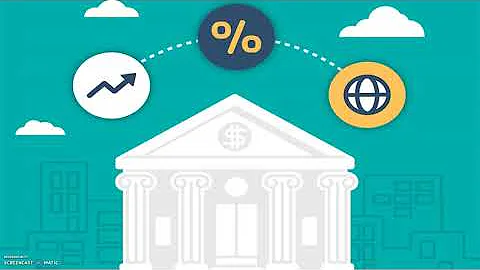Is a credit union a financial intermediary?
Answer: A bank or credit union serves as a financial intermediary between an individual and the rest of the economy by taking in deposits from savers and lending out this money to borrowers. This process facilitates the movement of money within the economy and promotes growth and stability.
The term “financial intermediary” means the entity that acts as the intermediary between parties in a financial transaction, such as a bank, credit union, investment fund, a village savings and loan group, or an institution that provides financial services to a micro, small, or medium-sized enterprise.
A financial intermediary is an entity that acts as the middleman between two parties in a financial transaction, such as a commercial bank, investment bank, mutual fund, or pension fund.
A credit union is a nonprofit financial institution that's owned by the people who use its financial products. Credit union members can access the same kinds of products and services as offered by a traditional bank, such as credit cards, checking and savings accounts and loans.
Answer and Explanation:
The stock market, bond market, and banks are all financial intermediaries but the government is not. The government is not a financial intermediary but it has become involved in financial intermediation.
Answer: A bank or credit union serves as a financial intermediary between an individual and the rest of the economy by taking in deposits from savers and lending out this money to borrowers. This process facilitates the movement of money within the economy and promotes growth and stability.
Financial intermediaries connect entities with surplus funds to entities with deficit funds. They facilitate the flow of money in the economy and promote economic growth. Commercial banks, investment banks, mutual funds, and pension funds are all examples of financial institutions.
What is a Credit Union? A credit union is a not-for-profit financial institution that accepts deposits, make loans, and provides a wide array of other financial services and products.
Banks pay taxes, whereas credit unions are not-for-profit institutions that don't pay federal taxes. Banks are accountable to shareholders who want to maximize profits. Credit unions return all profits to their members by paying higher APYs on deposits and charging lower interest rates on loans.
As a cooperative, a credit union conducts its business for the mutual benefit and general welfare of its members with the earnings, savings, benefits, or services of the credit union being distributed to its members as patrons.
What is an example of a non financial intermediary?
Examples of nonbank financial institutions include insurance firms, venture capitalists, currency exchanges, some microloan organizations, and pawn shops. These non-bank financial institutions provide services that are not necessarily suited to banks, serve as competition to banks, and specialize in sectors or groups.
: one that acts as a means or go-between in a matter involving other parties. a reinsurance intermediary.

Banking intermediaries are like banks that keep your money safe and give out loans, following strict rules. Non-banking financial intermediaries, like investment funds or insurance companies, help in compounding and protect money. They follow a different set of less strict rules.
Bank. A bank is a financial intermediary that is licensed to accept deposits from the public and create credit products for borrowers.
Banks are typically for-profit entities owned by shareholders who expect to earn dividends. Credit unions, on the other hand, are not-for-profit, member-owned cooperatives that are committed to the financial success of the individuals, families, and communities they serve.
A bank is called a financial intermediary because it serves as a bridge between savers and borrowers, facilitating the flow of funds within the financial system and ensuring efficient allocation of resources. By doing so, banks play a crucial role in promoting economic growth and stability.
Financial intermediaries provide a middle ground between two parties in any financial transaction. A prime example would be a bank, which serves many different roles: it acts as a middleman between a borrower and a lender, and pools together funds for investment.
As financial intermediaries, credit unions play a crucial role in the financial sector by facilitating the flow of funds between savers and borrowers. They are not-for-profit organizations owned and operated by their members, who are also their depositors and borrowers.
Both banks and credit unions are financial intermediaries connecting borrowers with lenders. The primary role of both these institutions is to match individuals with surplus money with borrowers looking for financing.
A credit counselor is not considered a financial intermediary because they do not pool deposits to make loans, unlike banks, insurance companies, and pension funds.
What financial institutions act as intermediaries?
Thus, banks act as financial intermediaries—they bring savers and borrowers together. An intermediary is one who stands between two other parties. Banks are a financial intermediary—that is, an institution that operates between a saver who deposits money in a bank and a borrower who receives a loan from that bank.
Financial intermediation refers to the practice of linking an investor and borrower. Acting as a third party, an intermediary aims to meet the financial needs of both parties to mutual satisfaction.
Credit union accounts. A credit union provides loans, savings, bank accounts and other services to their members. They are designed to help the community rather than make money, often accepting people who've been turned down for accounts and loans elsewhere.
Navy Federal is the country's largest credit union with around $168.4 billion in total assets and 13.2 million customers at the end of 2022, according to the latest data from the NCUA.
Generally, credit unions are viewed as safer than banks, although deposits at both types of financial institutions are usually insured at the same dollar amounts. The FDIC insures deposits at most banks, and the NCUA insures deposits at most credit unions.